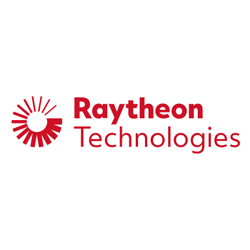Stop the privatization of health data
- by 7wData

Over the past year, technology titans including Google, Apple, Microsoft and IBM have been hiring leaders in biomedical research to bolster their efforts to change medicine.
In September 2015, Tom Insel announced that he would quit his position as head of the US National Institute of Mental Health to join Google Life Sciences (now Verily). Three months later, Michael McConnell took a leave of absence from directing major cardiovascular research programmes at California's Stanford University to join him. And last month, Stephen Friend took a senior position with Apple. He is co-founder and former president of Sage Bionetworks, a non-profit organization that promotes open science and patient engagement in research (where one of us, J.T.W, works).
In many ways, the migration of clinical scientists into technology corporations that are focused on gathering, analysing and storing information is long overdue. Because of the costs and difficulties of obtaining data about health and disease, scientists conducting clinical or population studies have rarely been able to track sufficient numbers of patients closely enough to make anything other than coarse predictions. Given such limitations, who wouldn't want access to Internet-scale, multidimensional health data; teams of engineers who can build sensors for data collection and algorithms for analysis; and the resources to conduct projects at scales and speeds unthinkable in the public sector?
Yet there is a major downside to monoliths such as Google or smaller companies such as consumer-genetics firm 23andMe owning health data — or indeed, controlling the tools and methods used to match people's digital health profiles to specific services.
Digital profiling in other contexts is already creating what has been termed a 'black box' society. Online adverts are tailored to people's age, location, spending and browsing habits. Certain retail services have preferentially been made available only to particular groups of people. And law enforcers are being given tools to help them make sentencing decisions that cannot be openly assessed (see go.nature.com/29umpu1). This is all thanks to the deliberately hidden collection and manipulation of personal data.
If undisclosed algorithmic decision-making starts to incorporate health data, the ability of black-box calculations to accentuate pre-existing biases in society could greatly increase. Crucially, if the citizens being profiled are not given their data and allowed to share the information with others, they will not know about incorrect or discriminatory health actions — much less be able to challenge them. And most researchers won't have access to such health data either, or to the insights gleaned from them.
We believe that the influx of health experts into Silicon Valley could foreshadow a fundamental shift in biomedical research and health care.
In various countries, including the United Kingdom, Sweden, Norway and Estonia, sustained pushes by governments and civil society have made standardized electronic health records the norm. And in the United States, hopes are high that truly useful electronic health records (that can be called up no matter which provider a patient goes to) will be rolled out within the next five years. Meanwhile, advances are being made in machine learning, and there is increased availability of digital health data outside the medical system. This type of information is much more amenable to machine-learning approaches than are conventional clinical observations. Furthermore, some of the technology corporations entering health have hundreds of billions of dollars in cash reserves. These factors combined could enable the new players to eclipse, not just join, the old ones.
[Social9_Share class=”s9-widget-wrapper”]
Upcoming Events
Evolving Your Data Architecture for Trustworthy Generative AI
18 April 2024
5 PM CET – 6 PM CET
Read MoreShift Difficult Problems Left with Graph Analysis on Streaming Data
29 April 2024
12 PM ET – 1 PM ET
Read More




